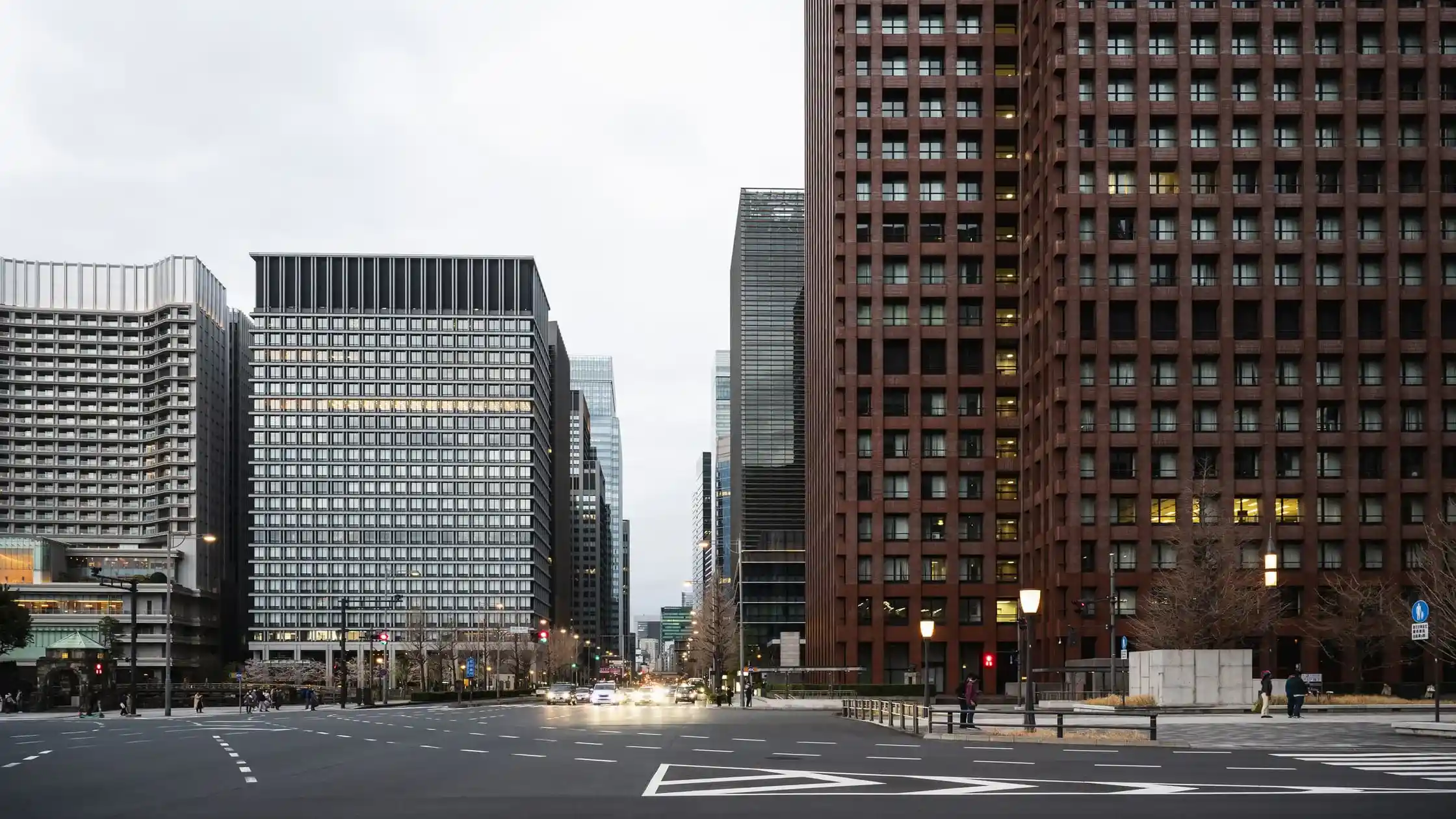Understanding the latest update to New York tenant screening laws is essential for landlords and tenants in 2025. These rules affect everything from application fees to background checks.
At LeaseRunner, we guide landlords through these updates while helping applicants understand their rights. This article explains the latest rules, the city’s new housing act, and what steps both renters and landlords should expect.
Overview of Tenant Screening Laws in New York
The basic rules for tenant screening in New York are a combination of federal, state, and local laws. This structure lets landlords evaluate tenants' applications legally.
Fair Credit Reporting Act (FCRA)
The Fair Credit Reporting Act (FCRA) is a federal law that affects New York rental application laws. It says landlords must get your permission before running background or credit checks. If a landlord rejects you based on a report, they must give you a copy and tell you where to get help.
HUD Fair Housing Guidance on Criminal Records
HUD’s rules guide landlords on how to fairly treat renters with criminal records under lease laws in New York. Landlords can’t just say no because of a past crime. They must look at how serious and recent it was and decide fairly. You can learn more about HUD's official guidance on criminal records to ensure you're in full compliance.
State Fair Housing & Use of Criminal Records
New York state law protects applicants from unfair screening practices. Landlords can only ask about certain crimes and usually only after making a conditional offer. New York background check rules mean they can’t discriminate based on race, gender, or income source.
Updates to New York Tenant Screening Laws in 2025
In 2025, New York tenant screening laws saw important changes, especially related to the use of criminal history in tenant approvals. Landlords and property managers using tenant background checks in New York must update their screening steps to stay compliant.

New York City Fair Chance for Housing Act (Local Law 24)
Starting January 1, 2025, New York City (NYC) has a new rule called the Fair Chance for Housing Act or Local Law 24. It restricts how landlords in NYC use criminal records. They cannot reject someone just because of old or minor crimes. Only recent serious convictions within specific time limits may be considered.
Under this Act, landlords in NYC must first review other parts of an application before looking at criminal history. If they deny an applicant due to criminal records, they must explain why and how the applicant can respond. This promotes fair housing chances. For local rules, check our New York laws resource.
Allowable Tenant Screening Criteria in New York

Knowing the legal New York tenant screening laws and rental requirements that New York landlords can enforce is crucial. Following fair housing rules is a must for a compliant screening. But landlords can still verify a person’s financial stability and rental behavior. This is often done using a tenant screening report.
Written Screening Policy Requirements for Landlords
A written policy is your main defense against lawsuits. It shows you follow New York tenant screening laws and federal fair housing rules. If an applicant sues, your policy serves as proof that you used objective factors, not personal bias, to make your decision. Without this proof, a court might assume your decision was discriminatory, which can lead to costly fines.
Credit & Rental History
Landlords can check an applicant’s financial past and previous tenancy. A credit report shows if a tenant pays debts on time, which indicates their reliability. Checking their eviction and rental history is also vital. For a thorough evaluation, landlords can use a rental verification report to confirm past rental behavior and financial responsibility.
We provide a full tenant background checklist to help the process run smoothly. Additionally, landlords should know the best methods for checking eviction history to assess tenancy accurately and ensure a smooth screening process.
Income & Employment Verification
It is legal to confirm that an applicant meets your financial rules. Landlords usually ask for an income that is 2.5 to 3 times the rent. But remember, New York rental screening laws protect tenants from being judged based on their source of income.
Under HUD, landlords must accept Section 8 vouchers as income. You must treat all legal income sources the same as a job's wages. This includes disability payments or Social Security. Our special Income Verification and Cash Flow Report makes this easier. It's a reliable way to check if an applicant can afford the rent.
Criminal History
The rules for using criminal history depend only on the property's location:
- New York City: Landlords must follow the tough FCHA rules (Local Law 24). This greatly limits how far back they can look. It also requires the conditional offer before running a check.
- Rest of New York State: Landlords outside of NYC can consider criminal convictions, but they must follow the state Human Rights Law. They can't automatically deny an applicant based on a criminal record. Instead, they must evaluate each case individually based on HUD recommendations.
Additionally, landlords must also consider Portable Tenant Screening Reports (PTSR). While landlords aren't required to accept these, if a tenant provides their own valid PTSR that's less than 30 days old, you can't charge them an application or screening fee. This is a key part of New York rental application laws.
How Much Can Landlords Charge Tenant Screening Fees?
New York tenant screening laws set a limit on tenant screening fees. These caps were put in place to stop landlords from requiring excessive screening fees without refunding unused portions.
Application Tenant Screening Fee Cap
Landlords may charge up to $20 per application to cover background checks for renters in New York. This cap has been in effect since the Housing Stability and Tenant Protection Act of 2019. There haven't been any changes to this specific cap as of 2025. It's a key part of New York tenant screening laws designed to protect applicants from excessive fees.
Receipt Requirements & Refund Rules
Landlords must give a receipt showing the fee charged. If landlords do not actually use the screening service or decide not to process the application, they must fully refund the applicant.
Additionally, if the screening cost is less than the fee collected, landlords are required to refund the difference. These rules ensure transparency in fees and protect applicants from being overcharged.
A Practical Guide to the New York Tenant Screening Process

Following a consistent process is the best way to comply with New York background check rules and all other state laws. We suggest this procedure to ensure you're acting fairly and achieving the best outcomes for your rental business.
Step 1: Collect Applications and Screening Fees
Gather a signed application from the tenant for consent. You can then collect the screening fee, which can't be more than $20 or the actual cost of the background check. This fee is non-refundable and separate from a security deposit.
A security deposit is a different charge altogether. It is money held by the landlord to cover potential damage to the property or unpaid rent. Under New York rental laws, a security deposit cannot be more than one month's rent
Step 2: Process Applications
Landlords then apply their written New York tenant screening policies consistently across all applications. This ensures fairness and adherence to legal frameworks.
Step 3: Run a New York Tenant Screening Report
Run credit, rental, employment, and criminal checks as part of the screening process. Landlords may accept tenant-provided PTSRs without charging fees. Consent must be obtained before accessing any screening reports to comply with legal requirements.
Services like LeaseRunner help landlords by providing fast, thorough tenant background screening services, including credit checks, eviction history, criminal records, and income verification. Our platform offers a centralized dashboard for easy access to reports, reducing vacancy times and simplifying decision-making.
Step 4: Evaluate & Make the Final Decision
This is how you decide what landlords look for in a background check. Carefully compare the reports against your requirements. Particularly, follow local laws on using criminal records.
Step 5: Issue Decision Notice
If rejecting, landlords must provide a written notice explaining the reasons and how tenants can get reports or dispute mistakes. For tenants, knowing how to check the tenant screening report after getting an adverse action notice is a crucial right. This allows them to identify and fix any mistakes that might have led to the denial.
Tenant Rights During the Tenant Screening Process
New York tenant screening laws give applicants strong rights. These rights ensure a fair process when they apply. These protections are a key part of the requirements to rent a house in New York.
Tenant Privacy Rights & Access to Screening Report
A tenant's privacy is protected by law. Landlords cannot run a credit or background check without the applicant’s written consent.
Federal laws like the Fair Credit Reporting Act (FCRA) protect your information. This includes your credit history, eviction records, and criminal background. The law keeps this sensitive data safe from anyone who shouldn't see it. Landlords must get your consent before they ask for these reports.
Dispute Against Inaccurate Information
Tenants can challenge incorrect information. Landlords and screening agencies must review disputes swiftly.
Appealing a Landlord’s Adverse Action Notice
Applicants can appeal by asking for their screening report and submitting corrections. This process is important, especially when navigating changes related to notice period for lease renewals or non-renewals, which can sometimes intersect with application timelines.
NYC-Specific Protections Under FCRA
New York City offers extra rules under the Fair Chance Housing Act, which restricts when and how landlords can use criminal history. This act greatly impacts the traditional rental house background check process in the city.
Best Practices for New York Landlords to Stay Compliant

Following New York tenant screening laws should not be difficult. By using a few simple best practices, you can speed up your process. You will lower your legal risk. You will also make sure you meet all the tough rules that control the tenant screening process in New York.
Always Use a Consistent, Written Policy
All landlords should use a clear, written screening policy. This policy must list specific, objective rules. These include a minimum credit score and an income rule. This consistency protects you from discrimination claims. You can show that you applied the same rental requirements to the New York standard to everyone.
Use an FCRA-Compliant Screening Service
Never try to create a report by searching public records yourself. You should use reliable tenant screening services in New York from LeaseRunner. Our digital platform ensures accurate results under a strong security system. We even help you stay legal by advising on the required Adverse Action Notices.
Follow the Application Fee Cap Exactly
Do not charge more than the maximum allowable fee of $20 or the actual cost of the report. Charging extra fees for processing time breaks New York rental application laws. You must also give an itemized receipt for the background check for renters in New York.
Honor Source of Income Protections
Train everyone involved in leasing to never discriminate based on where a tenant's money comes from. A Section 8 voucher or veterans' benefits must be checked the same way as a salary. This happens when you decide if the applicant meets your income rule.
You can check income using our specialized tools. We explain them in our guide on how to verify tenant income right here.
Learn the New York City FCHA Procedure
If you rent property in New York City, you must understand the FCHA's conditional offer process. Running the criminal check too early is a violation. You must check credit, income, and rental history first. Then, offer a conditional lease. After that, you run the criminal check and give the applicant the five-day window for an individual review.
Maintain All Applicants’ Records
Keep the applicants’ documents for at least two years. This includes the application form, the screening reports, the consent form, and any denial notices. If a fair housing complaint happens, your proof of a consistent and legal process will be your strongest defense.
Conclusions
The New York tenant screening laws of 2025 set clear limits on fees, criminal history checks, and tenant rights. Knowing the rules, especially NYC’s Local Law 24, and having fair screening practices benefits landlords and renters both.
Using transparent policies and reliable screening platforms like LeaseRunner makes the rental process easier and fairer. This helps create safer, more lawful renting experiences for everyone.
FAQs
1. What background checks can landlords run in New York?
Landlords can run credit, criminal, employment, and rental history checks, but must get written permission first. They must follow local rules on what criminal records they can consider.
2. What are the rent control laws in New York?
Rent control laws are complex and vary by location. They limit rent increases and protect tenants after they get the lease.
3. How much is a background check for an apartment in New York?
Application fees, including background checks, are capped at about $20. Based on this cap fee, the landlord can reasonably set the rent charge for tenants.



